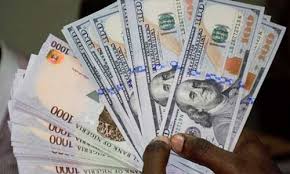
As the naira depreciates by 36%, Nigeria formally unifies its foreign exchange trading rates.
Before the Central Bank of Nigeria implemented a controlled exchange rate in 2017, this is the first significant decline in the Naira’s value since 2016.
In response to allowing the official exchange rate of the Naira to lose 36% of its value, the Central Bank of Nigeria (CBN) has announced additional measures to encourage the liberalization of foreign exchange trade.
The Investors and Exporters (I&E) window will be used for all foreign exchange trade, the CBN announced in a statement in March 2023. According to the announcement, CBN also reintroduced the “willing buyer, willing seller” concept.
The operational rate for all government-related foreign exchange transactions, according to the announcement, will be established using a weighted average of performed trades from the previous day. A central counter-party-cleared, order-based, two-way quotes will also once again be available, according to CBN.
Trading restrictions on the official market had been relaxed, according to merchants who talked with Reuters. As a result, the value of the Naira significantly dropped and in the official market hit a record low of 750 Naira to the US Dollar. This represents a significant drop from the rate of 477 Naira to the Dollar the day before.
This action was taken immediately after CBN Governor, who was in charge of overseeing the harshly criticized multiple exchange rate system, was suspended by President Bola Tinubu.
Multiple exchange rates have existed in Nigeria for a long time, which has led to a foreign cash scarcity. This scenario worsened under the direction of Godwin Emefiele, the suspended CBN Governor, making it difficult for investors to repatriate money from the nation with the largest economy in Africa.
The recently established exchange rate currently corresponds to the black market rate, which has been roughly stable since last year at around 750 Naira to the US Dollar.
Before the CBN implemented a controlled exchange rate in 2017, this is the first significant decline in the Naira’s value since 2016.
Foreign investors had frequently cited the limits on foreign exchange as one of the main barriers to funding in Nigeria, the continent’s top oil producer.


